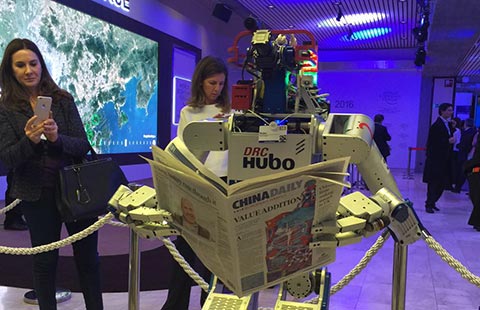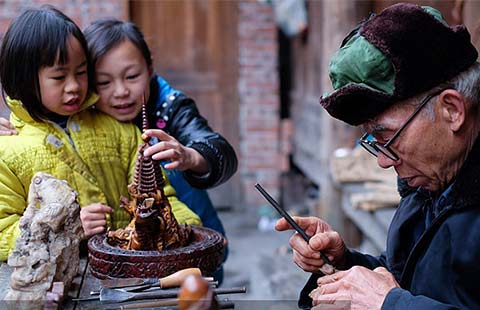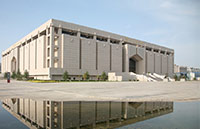CK Life Sciences set to buy Australia's grain producer
By Emma Gonzalez (China Daily) Updated: 2016-01-22 10:50
CK Life Sciences International (Holdings) Inc, a Hong Kong-based biotechnology company, is close to completing the acquisition of one of Western Australia's largest grain producers, continuing its expansion in the overseas agri-food industry.
A subsidiary of conglomerate Cheung Kong (Holdings) Ltd, the Chinese firm has offered $24 million for Nicoletti Group, an exporter of wheat and barley, according to Xinhua News Agency.
The agreement between the two was reportedly finalized on Thursday, pending approval from Australia's Foreign Investment Review Board.
The deal includes Nicoletti's five farms of approximately 68,000 hectares and a 15,000-ton grain storage facility in the wheatbelt north of Perth in Western Australia. The properties are in close proximity to a number of grain handling facilities and export terminals.
Shares in CK Life Sciences fell 4.76 percent to HK$0.6 (7 US cents) on Thursday. Company officials were not available for comment.
The Nicoletti Group, which officially put the assets up for the sale last year, produced 1.2 tons of wheat per hectare in the harvesting season just completed, according to Australian press reports.
CK Life Sciences, which has strong links to the family of Hong Kong business mogul Li Ka-shing, has been rapidly increasing investments in the Australian farming and agriculture industry.
The company is already a majority shareholder in vineyard owner the Challenger Wine Trust and owns farm products manufacturer Amgrow, Cheetham Salt, and crop protection solutions provider Accensi.
James Laurenceson, deputy director of the Australia-China Relations Institute at the University of Technology in Sydney, said the despite the rush in recent acquisitions, there are still ample of opportunities for Chinese companies.
"Chinese investors have historically only accounted for a very small fraction of foreign investment in agriculture," he said.
Foreign Investment Review Board figures show that in 2013 and 2014 approvals to Chinese investors in the agriculture, forestry and fishing sector totaled just $32 million, less than 1 percent of total foreign investment in the sector.
"Asia's rising middle class will mean more demand and higher prices for grains and other agricultural outputs in the future," said Laurenceson.
"Many Chinese investors see Australia's agricultural sector as having the capacity to expand and take advantage of this demand."
- Australia to coast on the milky way to export boom
- Record numbers for Chinese tourists in Australia
- China's free trade strategy takes shape with new agreements with S. Korea, Australia entering into force
- Historic China-Australia FTA enters into force, benefiting both countries
- Chinese consortium edges closer to securing Australia's largest milk supplier
- Chip-making sector still welcomes overseas investments
- Top 10 favorite gift brands of rich Chinese women
- Chinese Vice-President injects note of confidence in Davos
- CITIC overtakes HSBC to take bond-market top spot
- Philips eyes major role for China in R&D
- Indexes mirror sharp falls in Japan
- Private equity firm expands sports reach
- Capital outflow surged, but manageable, says SAFE
















